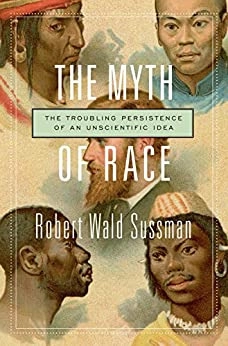Reading Level
What is the reading level of The Myth of Race: The Troubling Persistence of an Unscientific Idea by Robert Wald Sussman ?
Analysing the books in the series, we estimate that the reading level of The Myth of Race: The Troubling Persistence of an Unscientific Idea by Robert Wald Sussman is 12th and 13th grade.
Expert Readability Tests for
The Myth of Race: The Troubling Persistence of an Unscientific Idea by Robert Wald Sussman
| Readability Test | Reading Level |
|---|---|
| Flesch Kincaid Scale | Grade 12 |
| SMOG Index | Grade 15 |
| Coleman Liau Index | Grade 12 |
| Dale Chall Readability Score | Grade 7 |
Reading Time
9 hrs 35 mins
How long to read The Myth of Race: The Troubling Persistence of an Unscientific Idea by Robert Wald Sussman (2014-10-06)?
The estimated word count of The Myth of Race: The Troubling Persistence of an Unscientific Idea by Robert Wald Sussman (2014-10-06) is 143,530 words.
A person reading at the average speed of 250 words/min, will finish the book in 9 hrs 35 mins. At a slower speed of 150 words/min, they will finish it in 15 hrs 57 mins. At a faster speed of 450 words/min, they will finish it in 5 hrs 19 mins.
| The Myth of Race: The Troubling Persistence of an Unscientific Idea by Robert Wald Sussman (2014-10-06) - 143,530 words | ||
|---|---|---|
| Reading Speed | Time to Read | |
| Slow | 150 words/min | 15 hrs 57 mins |
| Average | 250 words/min | 9 hrs 35 mins |
| Fast | 450 words/min | 5 hrs 19 mins |
- Authors
-
Robert Wald Sussman
More about The Myth of Race: The Troubling Persistence of an Unscientific Idea by Robert Wald Sussman
143,530 words
Word Count
for The Myth of Race: The Troubling Persistence of an Unscientific Idea by Robert Wald Sussman (2014-10-06)
384 pages
Pages
15 hours and 26 minutes
Audiobook length
Description
Biological races do not exist―and never have. This view is shared by all scientists who study variation in human populations. Yet racial prejudice and intolerance based on the myth of race remain deeply ingrained in Western society. In his powerful examination of a persistent, false, and poisonous idea, Robert Sussman explores how race emerged as a social construct from early biblical justifications to the pseudoscientific studies of today.The Myth of Race traces the origins of modern racist ideology to the Spanish Inquisition, revealing how sixteenth-century theories of racial degeneration became a crucial justification for Western imperialism and slavery. In the nineteenth century, these theories fused with Darwinism to produce the highly influential and pernicious eugenics movement. Believing that traits from cranial shape to raw intelligence were immutable, eugenicists developed hierarchies that classified certain races, especially fair-skinned “Aryans,” as superior to others. These ideologues proposed programs of intelligence testing, selective breeding, and human sterilization―policies that fed straight into Nazi genocide. Sussman examines how opponents of eugenics, guided by the German-American anthropologist Franz Boas’s new, scientifically supported concept of culture, exposed fallacies in racist thinking.Although eugenics is now widely discredited, some groups and individuals today claim a new scientific basis for old racist assumptions. Pondering the continuing influence of racist research and thought, despite all evidence to the contrary, Sussman explains why―when it comes to race―too many people still mistake bigotry for science.
